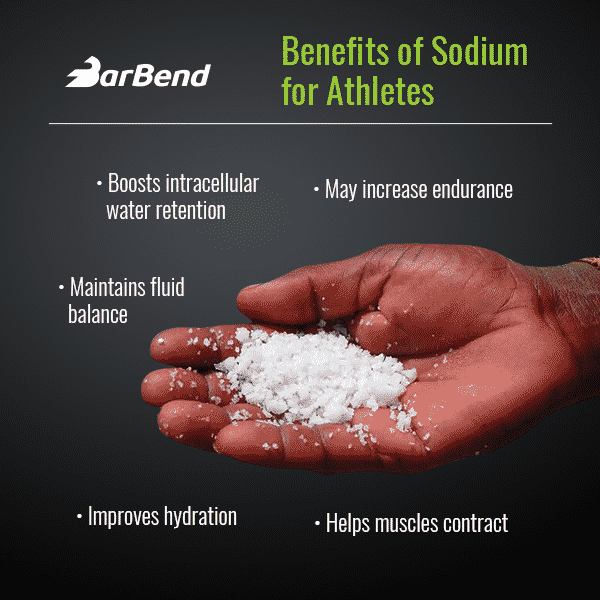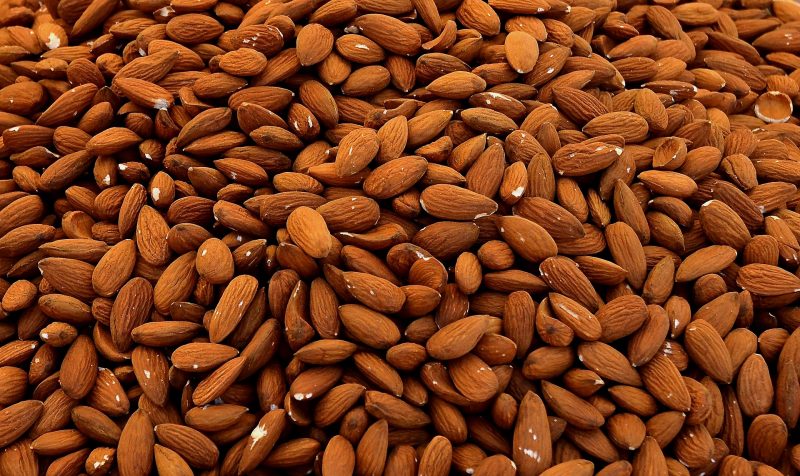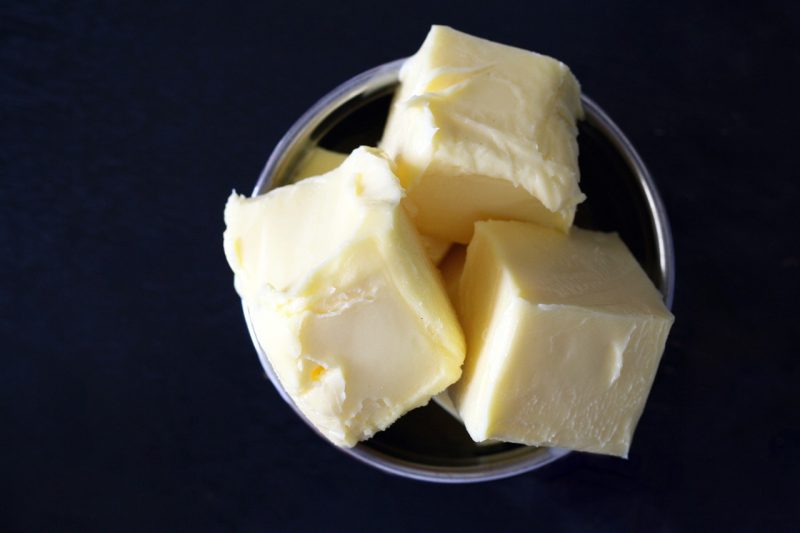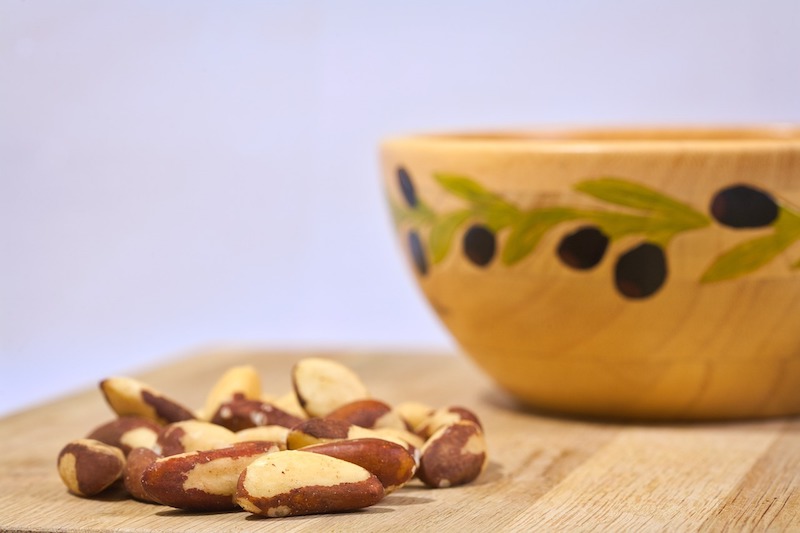If you’re looking to build muscle, you probably already know you need to eat a lot of calories. There’s a good chance you’ve got your hypertrophy program figured out, if you’ve really done your diligence you’ve worked out your calories and macros, but these days there’s a tendency among certain athletes stop there.
When it comes to bulking, calories and macros are fundamental in the truest sense of the word, but there are a lot of other nutrients that also need to come into play. In this article we’re going to draw attention to nutrients for recovery, nutrients for performance, nutrients for muscle growth.
Note that we’re not going to spend much time on vitamins and minerals that most people are getting enough of: if you’re eating a regular athlete’s diet that hits the right calories and macros, it’s unlikely you’ll be low in B-vitamins or Vitamin C. But unless you’re diligently eating a broad spectrum of foods, and especially if you’re exercising a lot, there’s a chance you’re falling short here. Today we’re discussing
Editor’s note: The content on BarBend is meant to be informative in nature, but it should not be taken as medical advice. The opinions and articles on this site are not intended for use as diagnosis, prevention, and/or treatment of health problems.
[Interested in the other side of the equation? Check out our ultimate guide to tracking your macronutrients!]
1. Sodium
- Maintains fluid balance
- Maintains blood volume
- Helps muscles contract
If you’re working out hard, don’t follow a low sodium diet. The FDA’s limit of 2.3 grams of sodium per day might make sense for the average sedentary American but if you’re sweating regularly, you’re losing sodium — a lot of it.
Sodium is an electrolyte, a name for minerals that help to maintain fluid balance in your cells. When you sweat or when you’re dehydrated, you lose electrolytes, and you lose more sodium than any of them. A liter of sweat has about 900 milligrams of sodium, 200 milligrams of potassium, 15 milligrams of calcium and 13 milligrams of magnesium. Because you lose so much sodium, and because these quantities of the other electrolytes aren’t super hard to get from a well balanced diet, sodium should take a priority in your recovery and rehydration.
“Your blood thickens when it’s dehydrated, so not only does your blood carry less oxygen, you have a harder time filtering blood through your kidneys,” Stan Efferding, the nutrition coach for World’s Strongest Man winners Brian Shaw and Hafthor Bjornsson, told us in our very good article on the benefits of sodium. “Salt helps to increase blood volume so you have a better cardiovascular system, better stamina, better endurance, and better recovery from training.”
Research has found athletes triathletes and endurance runners supplementing with sodium-laced water had significantly improved performance.(1)(2) In addition to helping with fluid balance it helps muscle contraction as well, and since sweaty workouts can result in up to 7 grams of lost sodium an hour, it’s wise to balance your workout with extra sodium when it makes sense.(3)
2. Magnesium
- Helps with sleep quality
- Helps with stress management
- Plays role in energy metabolism
That means sleeping well and taking appropriate breaks from training, but a crucial nutrient for recovery is magnesium. Most Americans are deficient, but research has shown that a healthy intake has strong links with lower amounts of stress and anxiety, better blood pressure, and increased sleep quality. (4)(5)(6)
You’ll often hear it called something like the “relaxation nutrient” or the “chill out nutrient” and the name is well earned, but don’t forget that better recovery translates to better workouts. A 2017 study review published in Nutrients highlighted its role in energy metabolism and muscle function, finding that adequate intake can lead to better VO2 max, grip strength, leg power, and gait speed.(7)
“Magnesium is useful in multiple energy and blood cell production processes, so important for endurance and recovery,” says Leyla Shamayeva, MS, RD, a New York-based dietitian. “For athletes particularly, it’s shed in sweat and urine, and low levels can cause you to get tired more quickly and experience muscle cramps. Avocados, nuts, legumes, and especially leafy greens like spinach are great sources. A single cooked cup of spinach offers close to 40 percent of the RDI!”
If you’re supplementing, shoot for magnesium citrate or glycinate instead of oxide, which doesn’t appear to absorb super well.
[Read our complete lifter’s guide to magnesium!]
3. Calcium
- Contributes to bone strength
- May help with testosterone
- Increases fat excretion
Unless you drink a lot of milk or eat a lot of cruciferous vegetables, it’s surprisingly easy to run low on calcium. It might be worth popping a supplement: even if you’ve heard this before, it bears repeating that calcium is really important for bone strength. While that might sound like something only senior citizens need to think about, it’s tremendously important for athletes lifting heavy loads as well.
Still not that interested? Adequate calcium intake has also been linked to healthy testosterone levels and, according to a meta analysis of twenty-nine randomized controlled trials, it probably helps you excrete fat and thereby improve body composition.(8)(9) That’s something most athletes can get behind.
[Smart bulking can involve a lot of carbs — if you’re thinking of supplements, check out our list of the 7 best mass gainers you can buy.]
4. Vitamin K
- Contributes to bone health
- Contributes to heart health
- Relatively limited research
A lot of people don’t even know this vitamin exists — it was only discovered in the 1920s — and research on it has been relatively scarce until recently. But it turns out that Vitamin K may play an important role in bone health: it may help proteins bind with calcium and make sure more calcium gets deposited in bones and less of it winds up in soft tissues.(10)(11) In this way it strengthens bones but it also reduces arterial stiffness, so it could improve heart health, too.
There’s also evidence that calcium, Vitamin K, and Vitamin D all enhance one another’s bone strengthening effects, which is why a lot of experts recommend monitoring your intake of all three.(12)(13)(14) We should note, though that a few controlled studies have found these links inconclusive.(15)(16) In any event, while we know a lot less about Vitamin K than most other nutrients, and it seems that ensuring you have adequate intake is beneficial.
“There are two main kinds of vitamin K in the diet—K1 and K2—but apart from the basics research on their differences is limited,” says Shamayeva. “We do know that differences in their absorption — they’re fat-soluble vitamins, so absorbed better if you eat greens with a source of fat, for example — lead to different benefits in your body, but how much each is involved with that needs more investigation.
Vitamin K1, which is found in leafy greens, seems to help with blood clotting while K2 is more closely associated with bone health. K2 is tougher to get: it’s in fermented products, and some animal fats like yolks and chicken thighs. If you’re convinced by the science, K2 makes the most sense for supplementing.
[Looking for a micronutrient-packed shake? Check out our guide to the best meal replacements!]
5. Vitamin D
- Linked to better mood
- May support healthy testosterone
- Contributes to bone strength
This nutrient is so essential that we’ve evolved to make it on our own from the sun itself, the thing that shines on most of the planet every day. Ironically, that’s why most people are deficient.
“It’s been linked to mood, mental health, and various other conditions,” says Shamayeva. “For most people, it’s not easy to get through diet alone. In areas like the Northeast, nowadays your doctor may assume that you’re deficient and recommend a supplement without testing, especially during winter. It’s a good idea to work with your doc to address any deficiency.”
For athletes, there’s also a pretty strong link between adequate Vitamin D and adequate testosterone — which is pretty important for building muscle.(17) One randomized controlled trial published in Hormone and Metabolic Research found that a year of supplementing with about 3,333 IU (about three times the recommended intake) saw an average increase of 20 percent in testosterone levels.(18)
About 15 minutes of full body exposure to the sun can get you all you need, but the vast majority of us can’t really pull that off in our day to day lives. It’s found in small amounts in some foods like egg and salmon, but it’s very hard to reach the RDI through diet alone. If you decide to supplement, D3 appears to be the best form of the stuff.
[Learn more in our athlete’s guide to Vitamin D.]
6. Zinc
- Helps with immunity
- Plays role in nutrient absorption
- Reduces inflammation
This mineral is pretty popularly associated with immunity, but there’s a lot more going on here.(19) For athletes, its link to testosterone is naturally important, but it also seems to help with nutrient absorption, a job that can be particularly tough when you’re slamming thousands of calories per day to help fuel athletic performance. It’s also been found to significantly reduces some markers associated with inflammation, meaning it may be useful for recovery from workouts.(20)
“The benefits of zinc are related to immune health as well as optimal production of testosterone and other androgens,” Kurtis Frank, the former research director at Examine.com, told us in our article on the benefits of zinc. “It’s relatively easy to attain adequate levels in diets containing meat products, but since it’s lost in sweat and eating more meat can be expensive, zinc is commonly used as a supplement.”
“Zinc is often overlooked, and unfortunately used up more quickly in athletes, so it’s important to pay attention to for body repair and supporting your immunity,” says Shamayeva. “Again, it’s the same classic good-for-you foods you’ll get zinc from: legumes, nuts, eggs, whole grains, and meat if you eat it.”
If you’re going with nuts and legumes, try to eat them with some Vitamin C, which helps the zinc to absorb.(21)
[Learn the best supplements in our guide to the best men’s multivitamins!]
7. Selenium
- Prevents cell damage
- Mitigates oxidative stress
- May help with hormonal health
“Selenium, along with Vitamin E, can help to prevent cell damage,” says Shamayeva. “There’s some evidence that physical activity increases your selenium requirements, but in any case, active individuals may want to be particularly mindful of their intake, especially because there’s research that suggests it helps repair cells.”(22)
This essential mineral helps to reduce cell damage because it’s an especially powerful antioxidant, so it helps to mitigate oxidative stress. A 2016 meta analysis of 69 studies published in Scientific Reports also found that it lowers the risk of breast, lung, esophageal, gastric, and prostate cancers to boot.(23) For athletes, the main benefits are the potential impact on recovery by way of lower cell damage and the possibility that selenium, especially when paired with adequate zinc intake, may help to maintain healthy testosterone levels.(24)
Natural sources are most potent in Brazil nuts and seafood.
Wrapping Up
To really tell you all the micronutrients you need to perform at your best, we’d need to pretty much list every micronutrient there is, and that’s a long list. Again, if you’re hitting your calories and macronutrients with mostly whole foods, it’s pretty hard to miss out on the recommended intakes of most nutrients but as our understanding of nutrition advances we’re learning that athletes can fall short in some critical areas.
Supplements can be useful but whenever possible, try to eat whole foods. In any event, speak with your physician or nutritionist before making drastic changes to your diet.
References
1. Freis T, et al. Effect of sodium bicarbonate on prolonged running performance: A randomized, double-blind, cross-over study. LoS One. 2017 Aug 10;12(8):e0182158.
2. Del Coso J, et al. Effects of oral salt supplementation on physical performance during a half-ironman: A randomized controlled trial. Scand J Med Sci Sports. 2016 Feb;26(2):156-64.
3. Godek SF, et al. Sweat rates, sweat sodium concentrations, and sodium losses in 3 groups of professional football players. J Athl Train. 2010 Jul-Aug;45(4):364-71.
4. Boyle NB, et al. The Effects of Magnesium Supplementation on Subjective Anxiety and Stress-A Systematic Review. Nutrients. 2017 Apr 26;9(5).
5. Rosanoff A. [Magnesium and hypertension]. Clin Calcium. 2005 Feb;15(2):255-60.
6. Abbasi B, et al. The effect of magnesium supplementation on primary insomnia in elderly: A double-blind placebo-controlled clinical trial. J Res Med Sci. 2012 Dec;17(12):1161-9.
7. Zhang Y, et al. Can Magnesium Enhance Exercise Performance? Nutrients. 2017 Aug 28;9(9).
8. Cinar V, et al. Effects of magnesium supplementation on testosterone levels of athletes and sedentary subjects at rest and after exhaustion. Biol Trace Elem Res. 2011 Apr;140(1):18-23.
9. Christensen R, et al. Effect of calcium from dairy and dietary supplements on faecal fat excretion: a meta-analysis of randomized controlled trials. Obes Rev. 2009 Jul;10(4):475-86.
10. Hodges SJ, et al. Age-related changes in the circulating levels of congeners of vitamin K2, menaquinone-7 and menaquinone-8. Clin Sci (Lond). 1990 Jan;78(1):63-6.
11. Cheung AM, et al. Vitamin K supplementation in postmenopausal women with osteopenia (ECKO trial): a randomized controlled trial. PLoS Med. 2008 Oct 14;5(10):e196.
12. Lanham-New SA, et al. Importance of calcium, vitamin D and vitamin K for osteoporosis prevention and treatment. Proc Nutr Soc. 2008 May;67(2):163-76.
13. Maresz K, et al. Proper Calcium Use: Vitamin K2 as a Promoter of Bone and Cardiovascular Health. Integr Med (Encinitas). 2015 Feb;14(1):34-9.
14. Hirano J, et al. Effects of vitamin K2, vitamin D, and calcium on the bone metabolism of rats in the growth phase. J Orthop Sci. 2002;7(3):364-9.
15. Gundberg CM, et al. Vitamin K-dependent carboxylation of osteocalcin: friend or foe? Adv Nutr. 2012 Mar 1;3(2):149-57.
16. Hamidi MS, et al. Vitamin K and bone health. J Clin Densitom. 2013 Oct-Dec;16(4):409-13.
17. Wehr E, et al. Association of vitamin D status with serum androgen levels in men. Clin Endocrinol (Oxf). 2010 Aug;73(2):243-8.
18. Pilz S, et al. Effect of vitamin D supplementation on testosterone levels in men. Horm Metab Res. 2011 Mar;43(3):223-5.
19. Prasad AS, et al. Zinc in human health: effect of zinc on immune cells. Mol Med. 2008 May-Jun;14(5-6):353-7.
20. Prasad AS, et al. Discovery of human zinc deficiency: its impact on human health and disease. Adv Nutr. 2013 Mar 1;4(2):176-90.
21. Siegenberg D, et al. Ascorbic acid prevents the dose-dependent inhibitory effects of polyphenols and phytates on nonheme-iron absorption. Am J Clin Nutr. 1991 Feb;53(2):537-41.
22. Margaritis I, et al. Increase in selenium requirements with physical activity loads in well-trained athletes is not linear. Biofactors. 2005;23(1):45-55.
23. Cai X, et al. Selenium Exposure and Cancer Risk: an Updated Meta-analysis and Meta-regression. Sci Rep. 2016 Jan 20;6:19213.
24. Oluboyo AO, et al. Relationship between serum levels of testosterone, zinc and selenium in infertile males attending fertility clinic in Nnewi, south east Nigeria. Afr J Med Med Sci. 2012 Dec;41 Suppl:51-4.






